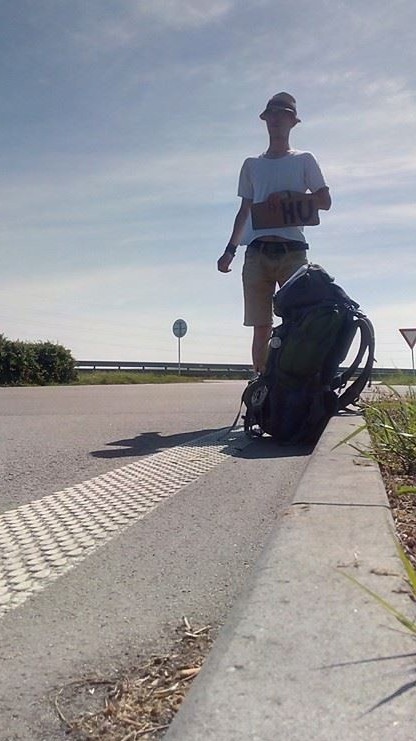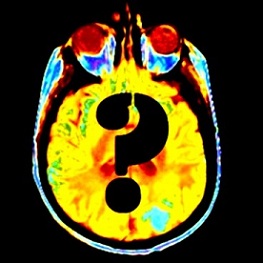|
Kategorie
|
-
-
-
 Psychologon / Rešerše
Are dating apps messing with our heads?
"Dating apps are everywhere, but how do they affect our mental health? Follow three people on their dating journeys, find out what these apps might be doing to us, and learn how to use them better." Psychologon / Rešerše
Are dating apps messing with our heads?
"Dating apps are everywhere, but how do they affect our mental health? Follow three people on their dating journeys, find out what these apps might be doing to us, and learn how to use them better."
BBC / 6. 5. 2019
-
-
-
 Psychologon / Rešerše
How do you prevent extremism?
"Örell argues that the main outcome of the extremist mindset is to create a strong sense of belonging: “In these groups you have a very strong sense of purpose and cause. I think this goes for a range of groups, whether it's white power groups or violent Islamic extremist groups, or gangs. What I see for a lot of people, essentially, is having been part of a group where you have this very strong commitment, you feel you have the brothers who are prepared to sacrifice their lives for you, you have a cause that's so important you are prepared to risk your life for it. These mechanisms are quite unusual and build together a very strong sense of 'us'.”" Psychologon / Rešerše
How do you prevent extremism?
"Örell argues that the main outcome of the extremist mindset is to create a strong sense of belonging: “In these groups you have a very strong sense of purpose and cause. I think this goes for a range of groups, whether it's white power groups or violent Islamic extremist groups, or gangs. What I see for a lot of people, essentially, is having been part of a group where you have this very strong commitment, you feel you have the brothers who are prepared to sacrifice their lives for you, you have a cause that's so important you are prepared to risk your life for it. These mechanisms are quite unusual and build together a very strong sense of 'us'.”"
BBC / 2. 5. 2019
-
-
-
 Psychologon / Rešerše
Our dangerous quest to perfect ourselves
"Now, research shows that all three elements of perfectionism associate with compromised mental health, including things like heightened depression, heightened anxiety and suicide ideation. But, by far, the most problematic element of perfectionism is socially prescribed perfectionism. That sense that everyone expects me to be perfect. This element of perfectionism has a large correlation with serious mental illness." Psychologon / Rešerše
Our dangerous quest to perfect ourselves
"Now, research shows that all three elements of perfectionism associate with compromised mental health, including things like heightened depression, heightened anxiety and suicide ideation. But, by far, the most problematic element of perfectionism is socially prescribed perfectionism. That sense that everyone expects me to be perfect. This element of perfectionism has a large correlation with serious mental illness."
www.ted.com / 15. 3. 2019
-
-
-
 Psychologon / Rešerše
The "dementia village" that's redefining elder care
"What we saw every day was that the people that lived in our nursing home were confused about their environment, because what they saw was a hospital-like environment, with doctors and nurses and paramedics in uniform, and they lived on a ward. And they didn't understand why they lived there. And they looked for the place to get away. They looked and hoped to find the door to go home again. And we said what we are doing in this situation is offering these people that already have a confused brain some more confusion. We were adding confusion to confusion. And that was not what these people needed." Psychologon / Rešerše
The "dementia village" that's redefining elder care
"What we saw every day was that the people that lived in our nursing home were confused about their environment, because what they saw was a hospital-like environment, with doctors and nurses and paramedics in uniform, and they lived on a ward. And they didn't understand why they lived there. And they looked for the place to get away. They looked and hoped to find the door to go home again. And we said what we are doing in this situation is offering these people that already have a confused brain some more confusion. We were adding confusion to confusion. And that was not what these people needed."
www.ted.com / 12. 3. 2019
-
-
-
 Psychologon / Rešerše
How brain biases prevent climate action
"We lack the collective will to address climate change because of the way our brains have evolved over the last two million years.
"Humans are very bad at understanding statistical trends and long-term changes,” says political psychologist Conor Seyle, director of research at One Earth Future Foundation, a programme incubator that focuses on fostering peace long-term.
“We have evolved to pay attention to immediate threats. We overestimate threats that are less likely but easier to remember, like terrorism, and underestimate more complex threats, like climate change.”" Psychologon / Rešerše
How brain biases prevent climate action
"We lack the collective will to address climate change because of the way our brains have evolved over the last two million years.
"Humans are very bad at understanding statistical trends and long-term changes,” says political psychologist Conor Seyle, director of research at One Earth Future Foundation, a programme incubator that focuses on fostering peace long-term.
“We have evolved to pay attention to immediate threats. We overestimate threats that are less likely but easier to remember, like terrorism, and underestimate more complex threats, like climate change.”"
BBC / 9. 3. 2019
-
-
-
 Psychologon / Psychologon
Milujem čierny humor, čo to o mne vypovedá
„Lekár vysvetľuje výsledky testu mladému páru, ktorý čaká dieťa. „No, na začiatok mám pre vás dobrú správu. vaše dieťa nikdy nebude mať problém nájsť parkovacie miesto.“ Pokiaľ ste sa zasmiali, nemusíte mať žiadne výčitky svedomia. Pochopenie vtipu si vyžaduje určité intelektuálne aj emocionálne predpoklady a posledné štúdie naznačujú, že preferencia toho čierneho nutne nehovorí v neprospech vašich povahových vlastností. Psychologon / Psychologon
Milujem čierny humor, čo to o mne vypovedá
„Lekár vysvetľuje výsledky testu mladému páru, ktorý čaká dieťa. „No, na začiatok mám pre vás dobrú správu. vaše dieťa nikdy nebude mať problém nájsť parkovacie miesto.“ Pokiaľ ste sa zasmiali, nemusíte mať žiadne výčitky svedomia. Pochopenie vtipu si vyžaduje určité intelektuálne aj emocionálne predpoklady a posledné štúdie naznačujú, že preferencia toho čierneho nutne nehovorí v neprospech vašich povahových vlastností.
Mária Chocholáčková / 8. 2. 2018
-
-
-
 Psychologon / Psychologon
Psychologie autostopu. 7 způsobů, jak využít vědu na silnici
Schopnost účinné komunikace nám pomohla (podobně jako jiným primátům) přežít a získat v evoluci jistou výhodu. Svým tělem dokážeme ostatním lidem vyslat širokou škálu neverbálních signálů a varovat je tak před nebezpečím nebo si říci o pomoc. A autostop není ničím jiným než výzvou o pomoc k druhému. V naší kultuře pro něj dokonce máme specifické gesto – zdvižený palec. Jen to ale k úspěšnému zastavení řidiče nestačí. Podstatnou roli totiž hraje jednak společné kulturní zázemí, jednak čitelná sociální komunikace. Úspěšnost ovlivňují nejen vysílané neverbální signály, ale také například pohlaví, vzhled a počasí. Jaké jsou nejúspěšnější strategie? Psychologon / Psychologon
Psychologie autostopu. 7 způsobů, jak využít vědu na silnici
Schopnost účinné komunikace nám pomohla (podobně jako jiným primátům) přežít a získat v evoluci jistou výhodu. Svým tělem dokážeme ostatním lidem vyslat širokou škálu neverbálních signálů a varovat je tak před nebezpečím nebo si říci o pomoc. A autostop není ničím jiným než výzvou o pomoc k druhému. V naší kultuře pro něj dokonce máme specifické gesto – zdvižený palec. Jen to ale k úspěšnému zastavení řidiče nestačí. Podstatnou roli totiž hraje jednak společné kulturní zázemí, jednak čitelná sociální komunikace. Úspěšnost ovlivňují nejen vysílané neverbální signály, ale také například pohlaví, vzhled a počasí. Jaké jsou nejúspěšnější strategie?
Petr Gal / 3. 10. 2016
-
-
-
 Psychologon / Rešerše
Do animals feel empathy?
Throughout her career as a neurobiologist, Peggy Mason has been told over and over that the rats she experiments on are not capable of empathy. Only humans and other primates can understand the emotions of another. Most other animals can't. And certainly not beady-eyed rats. But what she was witnessing in the lab was telling her something very different. Psychologon / Rešerše
Do animals feel empathy?
Throughout her career as a neurobiologist, Peggy Mason has been told over and over that the rats she experiments on are not capable of empathy. Only humans and other primates can understand the emotions of another. Most other animals can't. And certainly not beady-eyed rats. But what she was witnessing in the lab was telling her something very different.
Kitti Farkasová / 11. 8. 2016
-
-
-
 Psychologon / Psychologon
Cognitive Neuroscience of Social Behavior
Explanations of social behavior widely vary depending on the point of view of given field. The current article reveals how cognitive neuroscience could help us understand social behavior of humans. The functional magnetic resonance imaging (fMRI) was used in numerous studies to see which parts of the brain are active during social behavior. Social cooperation is based on the ability to sacrifice one´s current resources in order to gain in the future and research shows that it is related to tissues linked to rewarding behavior. Therefore, it is hypothesized that cooperative behavior is labeled as rewarding which allows us to overcome our selfish impulses. Research also suggests that our decisions are influenced by both, emotions and cognition and that socially induced pain is similar to a physical pain. Psychologon / Psychologon
Cognitive Neuroscience of Social Behavior
Explanations of social behavior widely vary depending on the point of view of given field. The current article reveals how cognitive neuroscience could help us understand social behavior of humans. The functional magnetic resonance imaging (fMRI) was used in numerous studies to see which parts of the brain are active during social behavior. Social cooperation is based on the ability to sacrifice one´s current resources in order to gain in the future and research shows that it is related to tissues linked to rewarding behavior. Therefore, it is hypothesized that cooperative behavior is labeled as rewarding which allows us to overcome our selfish impulses. Research also suggests that our decisions are influenced by both, emotions and cognition and that socially induced pain is similar to a physical pain.
Monika Kupcová / 2. 6. 2016
-
-
-
 Psychologon / Rešerše
Kang Lee: Can you really tell if a kid is lying?
Are children poor liars? Do you think you can easily detect their lies? Developmental researcher Kang Lee studies what happens physiologically to children when they lie. They do it a lot, starting as young as two years old, and they're actually really good at it. Lee explains why we should celebrate when kids start to lie and presents new lie-detection technology that could someday reveal our hidden emotions. Psychologon / Rešerše
Kang Lee: Can you really tell if a kid is lying?
Are children poor liars? Do you think you can easily detect their lies? Developmental researcher Kang Lee studies what happens physiologically to children when they lie. They do it a lot, starting as young as two years old, and they're actually really good at it. Lee explains why we should celebrate when kids start to lie and presents new lie-detection technology that could someday reveal our hidden emotions.
www.ted.com / 15. 5. 2016
-
-
-
 Psychologon / Psychologon
Skupinová polarizace: Proč se společnost radikalizuje?
Skupinová polarizace je tendence skupin rozhodovat se více extrémně než jednotliví členové. Článek popisuje také teorie skupinové polarizace (teorie sociálního srovnávání, teorie persvazivních argumentů, teorie sebekategoritace), fenomén posunu k riskantnosti a syndrom skupinářského myšlení. Článek se dále zabývá možným dopadem skupinové polarizace a v závěru se zamýšlí nad depolarizací. Psychologon / Psychologon
Skupinová polarizace: Proč se společnost radikalizuje?
Skupinová polarizace je tendence skupin rozhodovat se více extrémně než jednotliví členové. Článek popisuje také teorie skupinové polarizace (teorie sociálního srovnávání, teorie persvazivních argumentů, teorie sebekategoritace), fenomén posunu k riskantnosti a syndrom skupinářského myšlení. Článek se dále zabývá možným dopadem skupinové polarizace a v závěru se zamýšlí nad depolarizací.
David Lacko / 18. 1. 2016
|
|